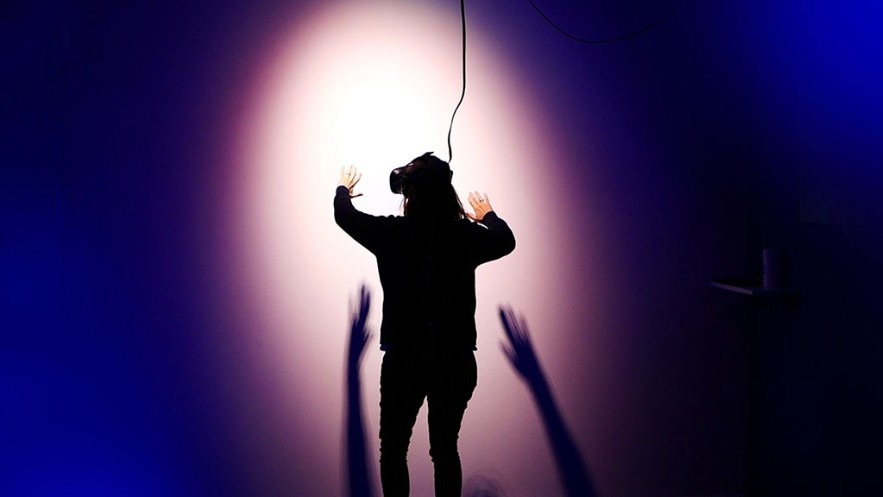Reviewed by Alex SmithOct 7 2022
To enhance the psychological counseling that young people experiencing depression receive, a clinical trial directed by Montesano and Guillem Feixas, a Professor at the UB Faculty of Psychology and the UB Institute of Neurosciences (UBNeuro), will evaluate new methods.
 Using the VR tool alongside therapy may offer added value for young people, since it can improve adherence to treatment and increase the appeal of psychotherapy. Image Credit: Stella Jacob, Unsplash
Using the VR tool alongside therapy may offer added value for young people, since it can improve adherence to treatment and increase the appeal of psychotherapy. Image Credit: Stella Jacob, Unsplash
We are talking about numbers that reach up to 60%–80% of young people, including those diagnosed with mild symptoms. And the numbers have probably increased with the pandemic. The symptoms are mild in most cases, but we know that the sooner these problems receive treatment, the less likely they are to persist in the long term or worsen.
Adrián Montesano, Researcher and Professor, Faculty of Psychology and Education Sciences, Universitat Oberta de Catalunya
The purpose of the study is to determine whether personal construct therapy is effective for young adults (18 to 29 years old) who have mild to moderate depressive symptoms. It will also investigate whether using it along with a new and advanced virtual reality application makes it more efficient.
The Spanish Ministry of Science and Innovation is funding the trial.
“Personal construct therapy focuses above all on how people construct their reality, and the meaning they give to things that happen to them and to the people around them. This is the first trial which has been carried out applying it specifically to young people with depressive symptoms,” added Montesano.
Its effectiveness will be compared with cognitive behavioral therapy, which is used as a benchmark since it focuses primarily on observable behaviors.
Applications of virtual reality have also been tested in exposure therapies to cure various phobias.
“This is the first time that they are being researched in the treatment of depression and in psychotherapy in general,” Montesano further stated.
The University of Barcelona developed the pioneering app, named EYME. The method leverages information from an earlier interview to turn the meanings and significant figures in the person’s identity into a 3D space represented by spheres and words.
Montesano stated, “It is possible to accompany the person on a journey through their mind, through their universe of meanings and personal values, fostering therapeutic conversation. The algorithms it uses are based on the work that has been done over two decades, and we believe that it may have added value among young people, for whom it can improve adherence to treatment and the appeal of psychotherapy.”
The patient’s participation in psychological therapy is one of its cornerstones. In general, different forms of psychotherapy have shown similar rates of effectiveness, but about 35% of patients discontinue receiving medical care before it is deemed complete. The number of alternatives would increase if the clinical trial is successful in its goal.
“Being able to personalize treatment based on personal preference is crucial,” remarked Montesano.
The trial has already started, and the first patients are being seen at the participating universities in addition to the clinics and hospitals connected to the project. There will be 225 patients involved, and registration will go on until the beginning of 2023.
Young adults between the ages of 18 and 29 who exhibit mild or moderate depressive symptoms are the candidates; as part of the study, they will be provided with “free therapy sessions of high scientific quality, conducted by expert professionals,” according to Montesano. The project website has a sign-up form for volunteers.
Montesano concluded, “Interventions and research in psychotherapy have traditionally focused on the most severe forms, which has partially led to young people being under-represented. Today we know that the sooner the problem is addressed, the better the long-term results, so the trend needs to be reversed. This is already happening in society, and it's something that must also happen in research.”
The Good Health and Well-Being Sustainable Development Goal (SDG) 3 is supported by the study.